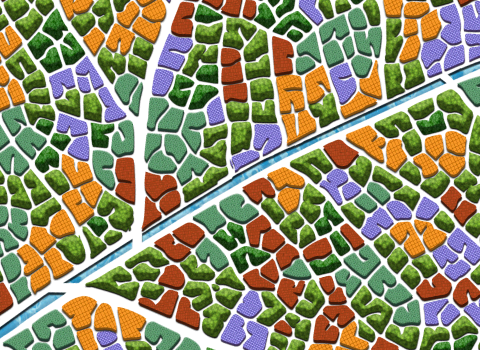

Climate Art Research Study
Judi’s newly expanded role in NAC English Theatre, which considers environmental issues from the perspective of artistic practice, is connected to an ongoing climate art research project led by David Maggs at the Metcalf Foundation, in association with Mass Culture.
The study explores the ‘culture gap’ in the climate crisis, with the goal of developing a dramaturgical process and evaluation framework for artistic engagements with climate that go beyond the information-deficit theory of change – the pervasive fallacy that if only people knew better, they would do better. Broadly expressed, the research delves into questions of how artists can best be supported and encouraged to help build the imaginative horizon of post-fossil futures, shift core values and identities towards more sustainable ways of being, and ultimately cultivate a sense of belonging in worlds we are yet to inhabit.
Irresistible Neighbourhoods is serving as a primary case study for this research.
A Commitment to Climate Justice
Irresistible Neighbourhoods is committed to climate justice – a concept which recognizes that those in front line communities facing the worst impacts of climate change are most often those who have contributed the least to the crisis, as well as the most vulnerable to its dangers due to existing social and economic precarity. Climate justice can be understood across racial, economic, geographic and intergenerational lines. In this sense, climate work is inseparable from work on Indigenous land rights and reconciliation, racial, gender and economic equity issues of all kinds.
Storytelling and theatre have the power to transform people. They illuminate injustice while sparking imagination and curiosity, which helps us problem-solve for today’s challenges while pushing us to (re)imagine green and just futures for our world.